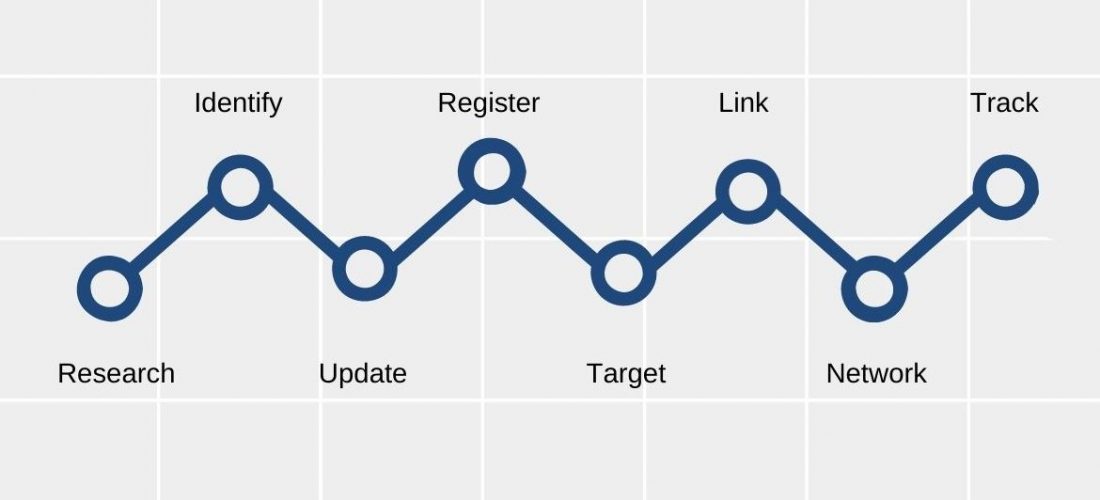Looking for work or changing careers can be a challenging task. It takes lots of time and effort. A job search action plan will help you to organise your search for work or an alternative career.
Benefits of a job search action plan
Job searching is hard work. Evaluating, planning and implementing a job search action plan with clearly defined goals motivates you to stick to your goals, and also makes you more effective in your search for work.
A job search plan is unique to you. It will depend on your life and situational factors. You need to be comfortable that you can commit to your plan and that it fits with your family obligations.
If you’ve lost your job, you may want to do things as quickly as possible to find a new role – calling or your contacts or knocking up a make-do resume. But remember – you’ve have just one chance to present yourself to the job market. Make sure your approach is planned and considered. You’ll have more success by slowing down and putting a well-considered plan into action.
An effective job search plan will help you:
How much time to spend
The more time you spend on planned job searching activities each week, the sooner you will find the right opportunity. Looking for a new job requires regular and ongoing effort and attention to be successful.
If you are not currently working, try to dedicate the majority of your time to seeking, evaluating and pursuing career opportunities.
Creating a strategic job search action plan
The current employment market is highly competitive. If you’re not focused on what you want to do, what you have to offer, where to search and how to do it, you risk wasting time and effort.
So what goes into your job plan? All the activity, discussions, research, networking and job applications that you need to undertake. Here’s a sample 8-step strategic job search action plan to get you started, with links to indepth advice articles.
1. Research employers and careers
- Allocate time to proactively research your industry.
- Visit the websites of organisations you would like to work for.
- Sign-up for employers’ vacancy email alerts.
- Visit job boards such as Seek.com or Careerone.com.
- Research career-related websites to get ideas and information. Awareness of the industry and marketplace will inform you about what an appropriate salary is when you are offered a role.
2. Identify potential roles
- List ideal roles.
- Identify the type of work environment, level of responsibility and hours you are seeking.
- Pinpoint any new qualifications you need. If you’re not sure, search job ads and research job descriptions.
- Consider volunteering opportunities to provide you with more experience and contacts.
- Develop a timeline for achieving each type of qualification. Set specific goals and priorities.
3. Update resume
- List relevant qualifications, skills and achievements.
- Keep to a maximum four pages.
- Ensure it is error-free, well-formatted and professional-looking.
- Review your resume during your job search to keep it tailored for specific opportunities.
- Develop a cover letter template and adjust for specific role.
4. Register with recruitment agencies
- Visit recruitment agencies‘ websites and review vacancies.
- Submit your resume.
- Submit applications for suitable advertised roles.
- Connect, build relationships and follow-up with recruiters regularly.
5. Target potential employers
- Contact people who can refer you to others employed by your target organisations.
- Meet people you have been referred to and find out more about the organisation.
- Ask if they can refer you to someone who can help your job search.
6. Use LinkedIn
- Complete your LinkedIn profile. Include a professional profile picture, attention-grabbing headline and summary and detailed experience, with dates, skills and expertise (using keywords).
- Provide and receive at least three recommendations.
- Join and contribute to relevant groups.
- Reach out to new contacts, former colleagues and professional acquaintances to find connections in your network and seek potential opportunities.
7. Network
- Identify potential contacts, for example friends, family, former colleagues and former classmates.
- Advise them you are looking for a new job.
- Ask them for referrals to potential employers or actual job leads.
- Attend networking opportunities hosted by groups aligned with your preferred industry.
- Allocate time for emails, phone calls, coffee or lunch meetings or other activities that expand your networks and access to opportunities.
8. Track job applications
- Review new advertised positions daily and apply as soon as possible as in many cases the recruitment process will commence prior to closing.
- Keep copies of applications and job advertisements.
- Record who you’ve met and your follow-up actions.
- Keep in touch with your referees.
Evaluating and updating your job search action plan
Evaluate your progress towards your goals regularly. This will show how far you have come each day, week or month. Acknowledge your efforts and development during your job search journey.
If you’ve not had a productive week or slipped on your targets that’s ok but be honest with yourself: own your job search and be accountable for deciding how much or little time you spend. Involve your family in your planning so everyone can commit to your plan if you have lots of family or personal commitments.
Is your mind or heart really not in your job search right now? Think about taking a few days off or even a week out to reflect and recharge. You need to be in the right frame of mind to be networking and marketing yourself, so perhaps have some down time.
